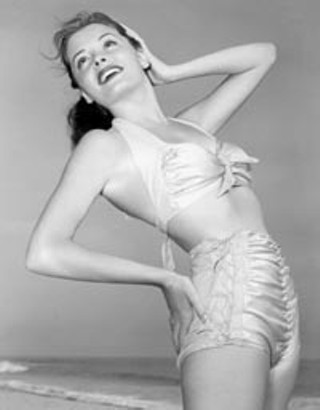Summer Reading
Fri., June 6, 2003
W.C. Fields: A Biography
by James CurtisKnopf, 624 pp., $35
It's always been the fate of the clown to watch himself eventually become subsumed, in the public imagination, by an oversimplified version of the persona he's created. W.C. Fields is commonly remembered as a sort of drunken bully who acerbically defended his actions with the signature line "any man who hates children and dogs can't be all bad." But the true Fields -- as James Curtis, biographer of James Whale and Preston Sturges, makes clear in his comprehensive new W.C. Fields -- was far more complicated. Though he could be cantankerous, Fields was remembered by many as a warm, generous man. Though he made light of his formidable off-screen alcohol intake, few of Fields' friends remember ever seeing him drunk, and Fields never played drunk in any of his films. Even that famous line -- perhaps the best-known Fields quip -- was never uttered by the Great Man at all, who often felt hurt by his reputation as a child-hater (in fact, one of the many sources of new Fields information that Curtis unearthed -- an aborted autobiography started in 1945 -- has Fields telling readers, "I have always had a fondness for nippers or children as we say. I have always wanted to help the little mites").
Curtis' main goal and greatest achievement in W.C. Fields is to gently separate the man from the myths and misquotes, presenting readers with a moving portrait of William Claude Dukenfield as both a performer whose relentless drive caused him to spend 10 months perfecting a particularly difficult juggling trick (the subsequent failure of which as an applause-getter -- apparently he made it look too easy -- shook Fields deeply) and a human being whose obsessive commitment to his craft ultimately estranged him from his wife and only legitimate son. Fields transformed himself from a self-taught 17-year-old with a stammer to one of the world's most revered silent vaudeville jugglers to the loquacious toast of Broadway before moving on to silent films, talkies, and even radio in a career that spanned half a century. However, most of his professional accomplishments were undercut by personal strife and a mounting feeling of isolation. Defiantly, Fields spun that strife and isolation into comedy that, gleefully amoral and sandblasted of any sentimentality, hit notes of almost excruciating hilarity. "I never saw anything funny that wasn't terrible," Fields noted. "If it causes pain, it's funny." Aching with real pain but never demanding sympathy, Curtis' loving evocation of W.C. Fields is fascinating, heartbreaking, and very funny indeed. -- Will Robinson Sheff

SUNKISSED: Sunwear and the Hollywood Beauty 1930-1950
by Joshua James CurtisCollectors Press, 160 pp., $24.95 (coffeetable)
A wistful look back to an era when bathing suits didn't require silicone implants, double-stick tape, and a bikini wax, Sunkissed is proof that, long ago, less was definitely more. It also reminds us of a time when art directors and photographers felt that any occasion was a good occasion to put a starlet in a bathing suit -- and we are also shown the genre known as "sunwear" or "playwear," a genre that no longer exists. Today's woman isn't quite as likely to want to appear on the beach in a satin swing-coat with matching tap pants, witch's hat, and platform shoes, but the photos are a joy to look at nonetheless. There is a wonderful series of photos taken at Castle Rock -- a craggy finger of rock reaching into the Pacific where Mack Sennett filmed his famous bathing beauties -- a place that now only exists in photos. We see shots of the big-time movie stars -- Joan Crawford, Susan Hayward, Dorothy Lamour, and Paulette Goddard, among others -- mingled with dozens and dozens of photos of starlets whose names and faces are unknown today. But no discussion of this book would be complete without talking about the dedication: a page of misty glamour photos of Lupe Velez, Norma Jean Dougherty (Marilyn Monroe), Carole Landis, Marie McDonald, Barbara Bates, and Dorothy Dandridge. Any casually devoted fan of the Hollywood of yesteryear knows that these are the stars that shone brightly but briefly, extinguishing their careers (or lack thereof) through suicide. Curtis writes: "This work is dedicated to these six extraordinary women. Each touched so many lives and yet were unhappy with their own. The joy they bring to millions will forever outweigh their sorrow in life and love." Perhaps a bit of an overstatement, but a touching sentiment, nevertheless. The pages of Curtis' book are littered with other babes whose lives came to no good end: Maria Montez, Gene Tierney, Frances Farmer, and Jean Harlow, and perhaps it's by coincidence that they are all here ... or perhaps Curtis' obsessions run deeper than cheesecake photos. In any event, while the book is frothy and sweet on the surface, the author's dedication to his subject is indicative of the legions of fans that crave a new twist on ancient history. -- Stephen MacMillan Moser






